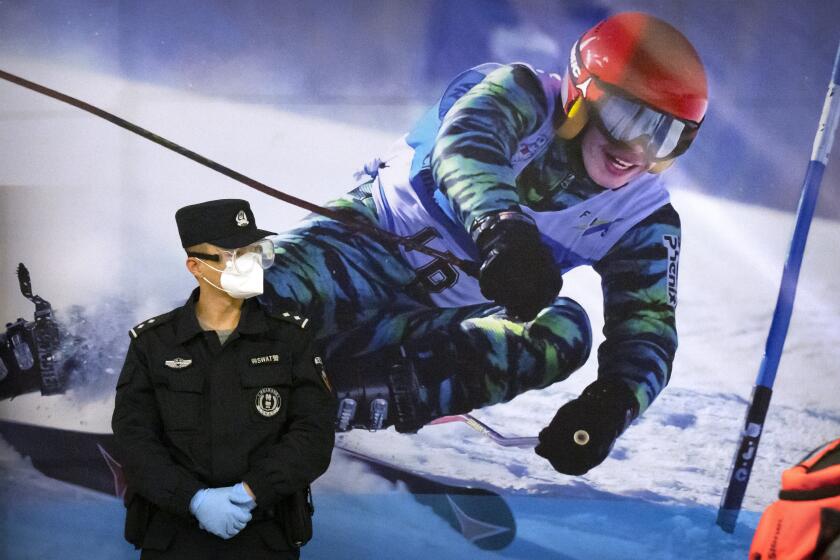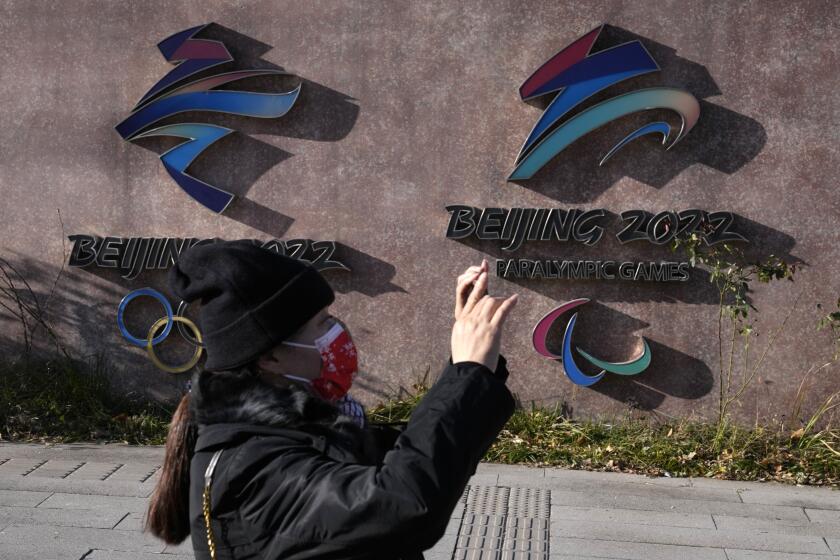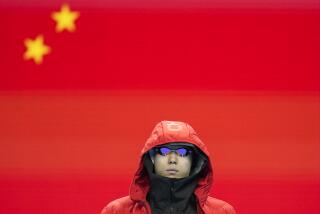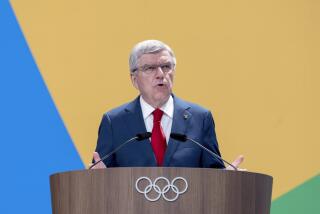IOC tries to stay neutral as more countries announce diplomatic boycott of Beijing Games
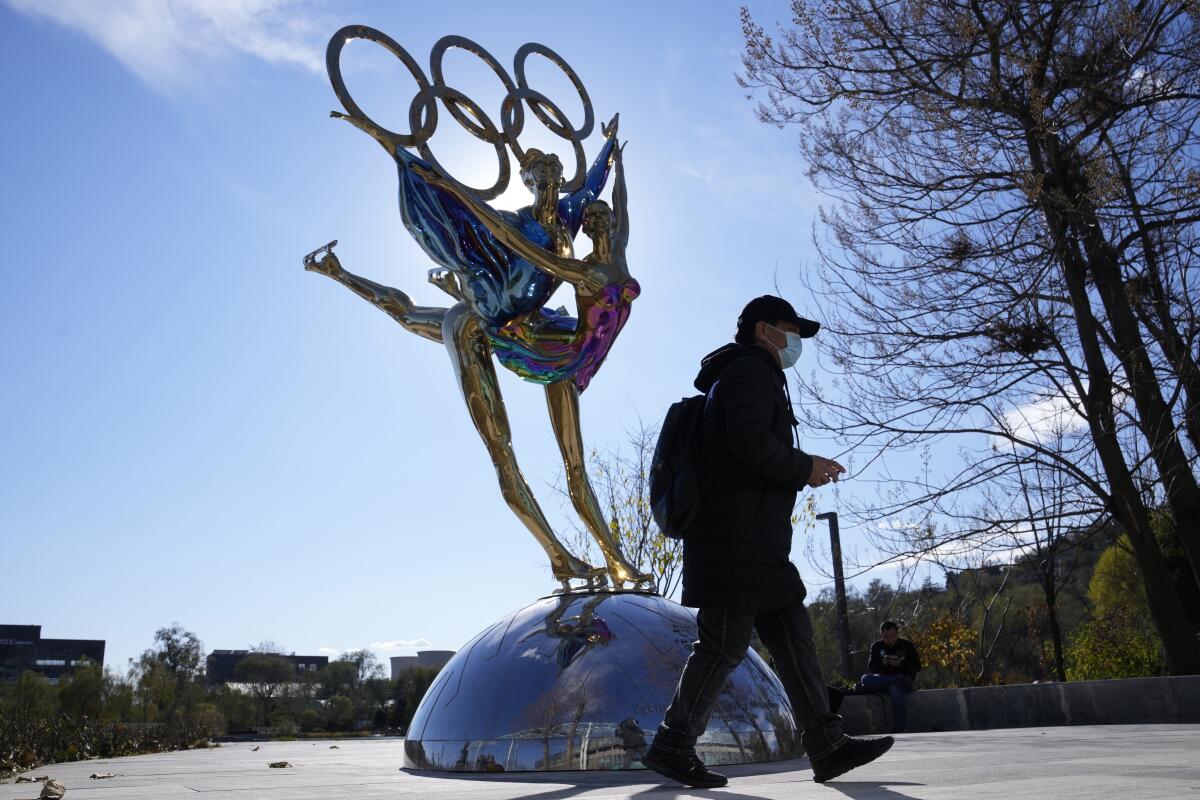
GENEVA — The president of the International Olympic Committee did his best to stay neutral Wednesday as Canada, Britain and Australia followed the United States in announcing diplomatic boycotts of the Winter Games in Beijing.
Thomas Bach, who has led the body through a series of problematic Olympic preparations since taking over in 2013, tried to spin the diplomatic snub into a positive by noting each country is allowing its athletes and teams to compete in Beijing.
“We have our full focus on the athletes,” Bach said in an online news conference. “We welcome that they can participate, that they are supported by their national governments. The rest is politics.”
Bach also praised himself for his video calls with tennis player Peng Shuai, a former Olympian from China who has mostly disappeared from public view since accusing a former top Communist Party official of sexually assaulting her.
The Beijing Games are set to open Feb. 4, the second Olympics to be staged during the coronavirus pandemic. The Summer Olympics in Tokyo were held in July and August, a year later than originally planned.
China is threatening to take ‘firm countermeasures’ if the U.S. proceeds with a diplomatic boycott of February’s Winter Games in Beijing.
The Western allies announcing diplomatic boycotts are acting against China because of long-standing concerns about the country’s human rights record, including the treatment of its Muslim minority Uyghur people. Many have called it genocide.
Bach, who was personally affected by the U.S.-led full boycott of the 1980 Moscow Olympics four years after winning a gold medal in team fencing with West Germany, dismissed the prospect of more diplomatic snubs damaging the upcoming Winter Games.
“You will hear the same comment from us for every political decision from any government,” Bach said. “The integrity of the Games are about the integrity of the sports competitions.”
The situation surrounding Peng, however, has led to suspicions that the IOC is colluding with China. Peng’s only known international contacts have been with IOC officials, including Bach in a 30-minute video call, while women’s tennis players and officials have been excluded.
“Suspicions you can have always and about everything,” said Bach, who has had several meetings and calls with Chinese leader Xi Jinping since Beijing was picked as host in 2015.
China is accusing the U.S. of violating the Olympic spirit by announcing an American diplomatic boycott of February’s Beijing Winter Games.
“The most important human right is the physical integrity,” Bach said of Peng’s safety, “and this physical integrity we have been ensuring during these calls and we will continue the calls and we will continue the support.”
No video footage or transcripts of the calls have been provided by the IOC, fueling doubts that Peng could speak or travel freely. She also appeared briefly at children’s tennis event in Beijing.
Despite those calls, the Women’s Tennis Assn. said last week it was pulling its tournaments out of China because of concern for Peng’s safety.
Bach, who is set to meet Peng for dinner in Beijing in January, insisted the IOC’s strategy of “quiet diplomacy” had so far achieved “what we could reasonably be expected to achieve.”
Bach also said he was open to the possibility of having a trusted figure from tennis, such as Martina Navratilova, joining a call with Peng. But he said it was up to Peng to decide who was on the call.
“Why don’t you respect Peng Shuai in this,” Bach said, “and let her decide where her priorities are?”
More to Read
Sign up for Essential California
The most important California stories and recommendations in your inbox every morning.
You may occasionally receive promotional content from the Los Angeles Times.
